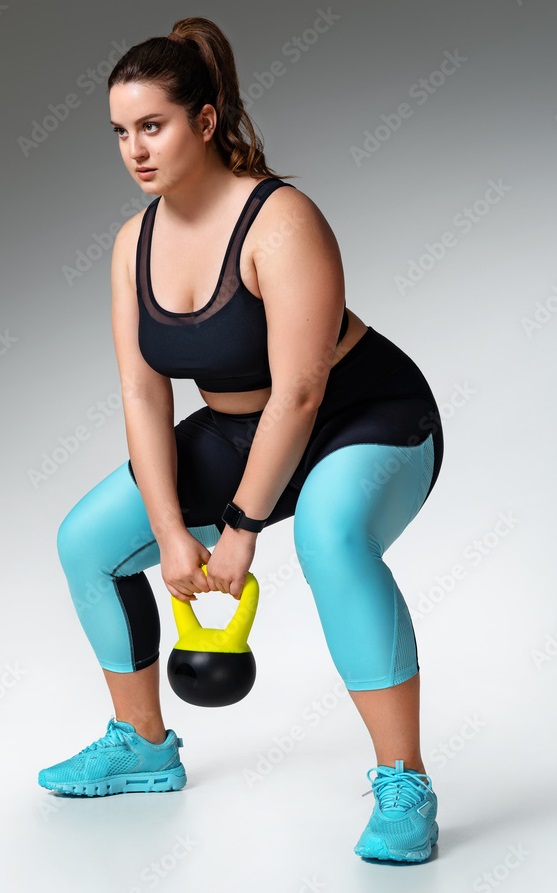Maintaining a fit and healthy body is essential for living a long and productive life. A healthy lifestyle not only boosts energy levels and improves mental health but also helps prevent chronic diseases. In today’s fast-paced world, with all the responsibilities that come with work, family, and social life, it can be challenging to find the time and motivation to stay fit. However, the benefits of regular physical activity and good nutrition are undeniable. In this article, we will explore various ways to maintain a fit body, including exercise, diet, sleep, and mental well-being. By incorporating these practices into your daily routine, you can improve your overall health and enhance your quality of life.

Exercise Regularly
One of the best strategies to maintain your fit and healthy is to exercise. Engaging in physical activity not only strengthens your muscles and bones but also improves cardiovascular health, boosts metabolism, and increases energy levels. Regular exercise can reduce the risk of developing chronic diseases like heart disease, diabetes, and certain types of cancer.
There are several types of exercise that you can incorporate into your routine to maintain fitness:
a. Aerobic Exercise
Aerobic exercises, also known as cardiovascular exercises, involve continuous and rhythmic activities that elevate your heart rate.Aerobic exercises include swimming, cycling, dancing, walking, and running. These exercises improve heart health, increase lung capacity, and burn calories.
Aiming for at least 150 minutes of moderate-intensity aerobic exercise per week, or 75 minutes of vigorous-intensity aerobic exercise, is recommended by health experts.
b. Strength Training fit and healthy
Strength training exercises involve using resistance to build muscle mass and improve strength. These exercises include lifting weights, bodyweight exercises (e.g., push-ups, squats), and resistance band workouts. Strength training helps increase lean muscle mass, which in turn improves metabolism and promotes fat loss.
It is essential to incorporate strength training exercises at least two days per week to maintain muscle strength and prevent the loss of muscle mass as you age.
c. Flexibility and Mobility Exercises
Incorporating flexibility exercises, such as yoga or Pilates, into your routine can improve your range of motion and reduce the risk of injury. Stretching and mobility exercises help keep the joints and muscles flexible and reduce muscle stiffness.
Spending just 10 to 15 minutes a day on flexibility exercises can greatly improve your posture, reduce muscle tension, and enhance overall body movement.
d. Balance and Coordination Exercises
Balance exercises are essential for maintaining stability, preventing falls, and improving coordination fit and healthy. These exercises are particularly important as we age, as they help to prevent injuries. Examples of balance exercises include standing on one leg, using a balance board, and practicing tai chi.
e. High-Intensity Interval Training (HIIT)
HIIT involves alternating short bursts of intense activity with brief periods of rest or low-intensity exercise. HIIT workouts are perfect for people with busy schedules because they may be finished faster than regular cardio exercises. Research has shown that HIIT can improve cardiovascular health, increase fat burning, and enhance endurance.
Follow a Nutritious Diet
A well-balanced diet plays a vital role in maintaining a healthy body. Proper nutrition provides the body with the essential vitamins, minerals, and macronutrients (carbohydrates, proteins, and fats) required for optimal functioning. A nutritious diet can help regulate weight, improve energy levels, support immune function, and promote healthy skin.
Here are some dietary guidelines for keeping the body fit:
a. Eat a Variety of Whole Foods
Eating a variety of whole, minimally processed foods is essential for providing your body with the necessary nutrients. Include a wide range of fruits, vegetables, whole grains, lean proteins, and healthy fats in your daily meals. Aim to consume a colorful plate to ensure that you’re getting a diverse array of vitamins and antioxidants.
b. Consume Protein for Muscle Repair and Growth
Protein is a critical nutrient for building and repairing muscles for fit and healthy. Incorporating sources of lean protein into your diet, such as chicken, turkey, tofu, eggs, legumes, and fish, helps promote muscle growth and repair after exercise for fit and healthy. Protein also aids in satiety, helping you feel fuller for longer, which can be beneficial for weight management.
c. Stay Hydrated fit and healthy
Drinking enough water is crucial for overall fit and healthy. Water helps maintain proper body temperature, lubricates joints, and supports digestion. Adequate hydration is essential for optimizing athletic performance and preventing dehydration, which can impair physical performance and lead to fatigue fit and healthy.
d. Limit Processed and Sugary Foods
Processed foods, such as chips, sugary snacks, and fast food, tend to be high in unhealthy fats, sugar, and salt, which can contribute to weight gain and increase the risk of chronic diseases like diabetes and heart disease. Limit your intake of sugary drinks, packaged snacks, and processed foods and opt for whole, nutrient-dense alternatives fit and healthy.
e. Mindful Eating-fit and healthy
Practicing mindful eating involves paying attention to your hunger and fullness cues, eating slowly, and savoring the flavors of your food. This can help prevent overeating, improve digestion, and promote better long-term dietary habits.
f. Control Portion Sizes
Maintaining a healthy weight requires eating in moderation. While it is essential to nourish your body with nutritious foods, portion control is key to prevent overeating and ensure you don’t consume excess calories. Using smaller plates and bowls, and being mindful of portion sizes, can help you maintain a balanced diet.
Prioritize Sleep and Rest
Adequate sleep is crucial for maintaining a fit and healthy body. Sleep allows the body to repair and recover from the physical and mental stresses of daily life. Poor sleep can lead to fatigue, decreased cognitive function, weakened immunity, and even weight gain.
To promote optimal sleep:
a. Establish a Consistent Sleep Schedule
Going to bed and waking up at the same time each day helps regulate your body’s internal clock and improve the quality of your sleep. Depending on your needs, aim for 7 to 9 hours of sleep every night.
b. Create a Sleep-Friendly Environment
fit and healthy a quiet, dark, and cool room is ideal for sleeping. Consider using blackout curtains, earplugs, or white noise machines to minimize disturbances. Remove distractions like electronics from your bedroom to create a peaceful space.
c. Limit Caffeine and Stimulants
Caffeine and other stimulants can interfere with your sleep if consumed too close to bedtime. Try to avoid caffeinated drinks, such as coffee, tea, and soda, in the afternoon and evening.
d. Practice Relaxation Techniques
Relaxation techniques like deep breathing, meditation, and progressive muscle relaxation can help calm the mind and prepare the body for sleep. Engaging in these activities before bed can enhance the quality of your sleep and help you feel more rested.
Manage Stress and Mental Health

Mental well-being is just as important as physical fit and healthy. Chronic stress can have a negative impact on both physical and mental health, leading to issues like weight gain, poor immune function, and a heightened risk of cardiovascular disease. Finding ways to manage stress and improve mental health is essential for maintaining overall fitness.
Here are some ways to manage stress and promote mental well-being:
a. Exercise for Mental Health
One of the best strategies to deal with stress is to be physically active. Exercise releases endorphins, the body’s natural mood boosters, which can help reduce feelings of anxiety and depression. Regular physical activity also improves self-esteem and promotes better sleep.
b. Practice Mindfulness and Meditation
Focusing on the here and now and developing awareness are key components of mindfulness and meditation. These techniques can boost general wellbeing, lessen stress, and promote emotional control. Even a few minutes of meditation each day can make a significant difference in managing stress levels.
c. Build Strong Social Connections
Having a strong social support system is important for mental health. Spend time with family and friends, engage in social activities, and build meaningful relationships. Social ties lessen loneliness, offer emotional support, and increase happiness in general.
d. Engage in Hobbies and Interests
Pursuing hobbies and interests that bring you joy is an effective way to reduce stress and improve mental well-being to fit and healthy. Whether it’s painting, playing an instrument, gardening, or reading, engaging in activities you enjoy can help you relax and recharge.
e. Seek Professional Help
If you’re struggling with chronic stress, anxiety, or depression, seeking professional help from a therapist or counselor can provide valuable support. You can address underlying mental health issues, enhance emotional resilience, and create coping mechanisms with the support of therapy -fit and healthy.
Incorporate Active Lifestyle Habits

In addition to formal exercise routines, incorporating more physical activity into your daily life can have a significant impact on your overall fitness. Simple changes to your daily habits can increase your overall level of activity and improve your health.
a. Take the Stairs
Take the stairs rather than the elevator. Climbing stairs is a simple yet effective way to build lower body strength, improve cardiovascular health, and burn extra calories.
b. Walk or Cycle for Short Trips
Instead of driving for short distances, think about walking or cycling. These activities provide an excellent low-impact workout and are great for overall fitness.
c. Stretch Throughout the Day
If you have a sedentary job or spend long periods sitting, take breaks throughout the day to stretch and move. This will help improve circulation, reduce muscle stiffness, and prevent back and neck pain.
Conclusion
Maintaining a fit body is not just about looking good; it is about feeling good and promoting overall fit and healthy-being. By incorporating regular exercise, eating a balanced diet, prioritizing sleep, managing stress, and adopting an active lifestyle, you can achieve and maintain a healthy body. Remember that fitness is a lifelong journey, and small, consistent changes can lead to significant improvements in your health over time. fit and healthy Take the first step today and begin implementing these practices into your routine for a happier, healthier you.
FAQs’
How to stay healthy in 2025?
How to stay healthy in 2025?
10 health tips for 2025
Eat a healthy diet.
Consume less salt and sugar.
Reduce intake of harmful fats.
Don’t smoke.
Be active.
Check your blood pressure regularly.
Follow traffic laws.
Take antibiotics only as prescribed.
What are 10 ways to stay fit and healthy?
Measure and Watch Your Weight. …
Limit Unhealthy Foods and Eat Healthy Meals. …
Take Multivitamin Supplements. …
Drink Water and Stay Hydrated, and Limit Sugared Beverages. …
Exercise Regularly and Be Physically Active. …
Reduce Sitting and Screen Time. …
Get Enough Good Sleep. …
Go Easy on Alcohol and Stay Sober.
How do we keep fit and healthy?
Healthy movement may include walking, sports, dancing, yoga, running or other activities you enjoy. Eat a well-balanced, low-fat diet with lots of fruits, vegetables and whole grains. Choose a diet that’s low in saturated fat and cholesterol, and moderate in sugar, salt and total fat.
How can I make my body fit and healthy?
Make a balanced routine.
Or get at least 75 minutes of vigorous aerobic activity a week. You also can get an equal combination of moderate and vigorous activity. Aim to exercise most days of the week. For even more health benefits, get 300 minutes a week or more of moderate aerobic activity.
